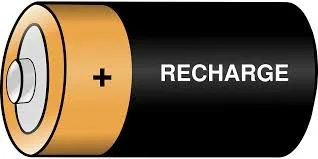When it comes to the future of transportation, one would definitely mention electric cars (obviously powered by Lithium-ion batteries). But what about cargo trucks, semi -trucks, the aviation industry, the marine? With the current battery in place, it cannot throttle these sectors due to its low specific energy per kilogram figures. Specific energy means the amount of energy that is trapped in a substance which can be used to produce work and it is usually measured in Megajoules per kilograms. Different materials have different specific energies. Materials used in nuclear plants such as uranium, plutonium, etc tops the list of materials with high specific energy.

Source: Wikipedia
Now coming to the future of transportation which is obviously green (Electric). These vehicles are powered by Lithium ion batteries which has a specific energy of about 0.9MJ/kg which is terrible for commercial sectors like heavy duty trucks, aviation, marine, etc. To understand this clear, one must know the specific energy values of the corresponding fuels used in the respective industries. These values are nearly 48MJ/Kg, 46MJ/Kg and 43 MJ/Kg for diesel, gasoline and jet fuel (Kerosene) respectively. These values are several times higher than that of some of the best batteries available in the market presently. In order to provide power to a heavy-duty vehicle (truck) more batteries are required which would increase the weight of the vehicle tremendously and thereby reducing the load carrying capacity of the vehicle leading to less profits. In addition to that, the increase in weight due to battery would consequently reduce its range further.
This doesn’t mean that electric trucks are not possible but they are just less commercial. But this is not the case when it comes to the aviation or the marine industries. In aviation, weight is the villain. They play a pivotal role in calculating the right speed and distances for take-off and it is mandatory for the pilots to calculate the weight of the aircraft (including weight of the passengers which is an average value) along with other parameters to calculate the V-speeds. Here the weight of the fuel turns out to be 20 to 25 percent of the overall weight. When batteries are replaced instead of jet fuels, the weight of the batteries would be enormous that the aircraft either could not take off or has terribly low range. This cannot be a solution here and future of aviation is somewhere beyond batteries. Even if a battery of specific energy close to that of jet fuel is found, it is very less likely that the aviation industry would implement them as every airline operating in the world fights with time if an aircraft stays in the land for minutes more than the scheduled time, it makes huge losses for the airline and batteries cannot be charged within that short period which would create a disaster in the global economy.
What will be the future of the commercial sector then? Will it be hydrogen? Discussed separately.
